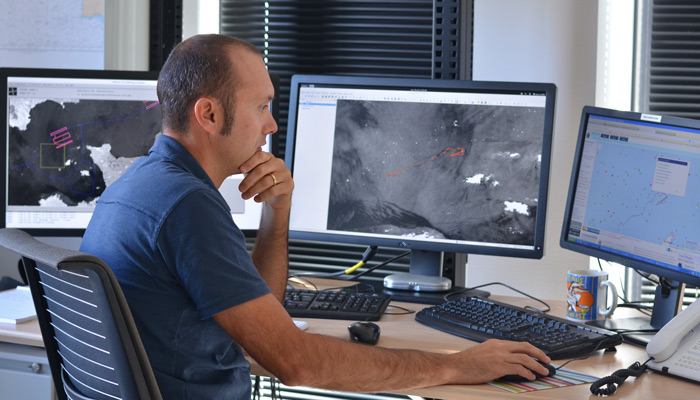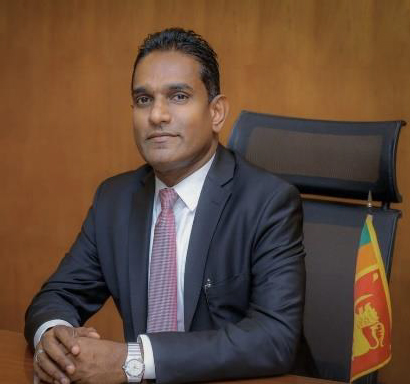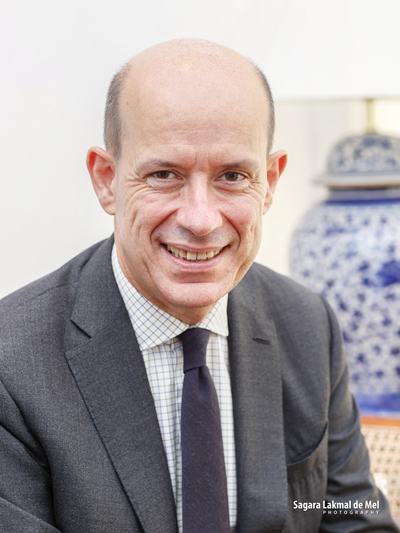CLS, a French company developing satellite-based solutions for a sustainable planet and a leading player in maritime safety, is stepping up to help protect Sri Lanka’s waters with a pilot project to detect and monitor marine oil spills for Sri Lanka’s Marine Environment Protection Authority (MEPA).
 |  |
Lying at the southern tip of the Indian subcontinent, Sri Lanka is strategically located to become a key stage along the main Indian Ocean shipping routes. However, this geopolitical advantage also exposes it to the growth in shipping traffic. On average, 350 ships sail through Sri Lanka’s Economic Exclusion Zone (EEZ) every day, increasing the risk of pollution from both accidental spills and illegal discharges.
The recent MV X-Press Pearl disaster is a case in point that showed just how high a risk the country faces. In response, MEPA, the authority tasked with preventing, monitoring and managing marine environment pollution in Sri Lanka, will be working with CLS to put in place an innovative project.
The OSDS project (Oil Spill Detection Sri Lanka) will operate a marine oil spill detection service offering the capability to identify potential polluters for the Sri Lankan authorities, notably MEPA. It aims to demonstrate the effectiveness of satellite technologies in reducing marine pollution incidents and mitigating their environmental impact. The pilot project will mark the first step toward developing a sovereign local capability to meet the challenges that lie ahead.
This proven detection system has already been successfully deployed in other regions around the world. For example, in Europe the CleanSeaNet service operated by the European Maritime Safety Authority (EMSA) has had a clear deterrent effect, halving the number of pollution incidents detected in European waters in 10 years.

To this end, CLS will be working closely with partners renowned in the field of marine protection. The CEDRE (documentation, research and experimentation center on accidental water pollution) will be contributing its experience in tackling marine pollution, while Cosse Consulting, headed by independent expert Christian Cosse, will be providing legal expertise. Just In Time Group, a Sri Lankan company specializing in information and telecommunications technologies, will be providing local support to ensure the project runs smoothly.
The OSDS initiative is aligned with the United Nations Sustainable Development Goals (SDG), in particular SDG 14 relating to life below water. CLS is a mission-driven company and a signatory to the UN Global Pact since 2016, and 95% of what it does is contributing to the 17 SDGs set by the United Nations. By helping to protect Sri Lanka’s marine ecosystems and enabling better coordination in the event of accidents, this project will preserve the country’s natural resources.
Asela B. Rekawa, Chairman of Sri Lanka’s MEPA noted that:

“Innovative Collaboration to Safeguard Sri Lanka’s Marine Environment.
Sri Lanka, nested in the heart of the Indian Ocean with strategic position along major shipping routes and boasting several commercial harbors managing over 5000 ships annually, faces an elevated risk of oil pollution in its waters. Recent maritime incidents underscore this risk and emphasize the urgent need for a robust maritime disaster response mechanism.
Recognizing the imperative to swiftly identify and address oil pollution events in Sri Lankan waters, as well as hold accountable those responsible, the collaborative endeavor, “Pioneering Project for Maritime Oil Spill Detection and Monitoring in Sri Lanka”, generously funded by the French government, marks a significant milestone. This project sets the stage for the establishment of a state-of-the-art satellite-based oil spill monitoring system, empowering us with cutting-edge technology to vigilantly monitor and respond effectively.
The coastal and marine resources that grace our shores are the lifeblood of our socio-economic development. Ensuring the sustainability of our nation’s progress hinges on safeguarding the integrity of our coastal ecosystems. This project lays the groundwork for an enduring mechanism to shield our marine environment, benefiting critical industries such as fisheries and tourism. The preservation of these industries is pivotal to the sustained growth of our nation.
This collaboration marks the initial phase of our partnership, and we anticipate its evolution towards a comprehensive, long-term solution for ship-based oil pollution monitoring, achieved through our join efforts.”

Jean-François Pactet, French Ambassador to Sri Lanka and the Maldives, said:
“France is funding this project as part of its commitment to taking concrete action to reduce threats to the oceans. Benefitting from the proven expertise of CLS in the field of satellite observation, this project aims to reduce marine pollution and improve maritime safety by detecting and reducing oil discharges from ships and will contribute to the development of Sri Lanka as one of the main maritime centers in the Indian Ocean as well as to the preservation of its unique marine biodiversity. While we celebrate the 75th anniversary of bilateral diplomatic relations between France and Sri Lanka, this project highlights France’s continuous dedication to support Sri Lanka on its path towards sustainable economic development”.

Sophie Besnard, CLS Head of International Development, commented:
“CLS is proud to be involved in this initiative crucial to preserving Sri Lanka’s waters and maritime safety. Working with dedicated partners and using state-of-the-art technologies, we are resolutely committed to preserving the environment and ensuring a sustainable future for Sri Lanka. We thank the Sri Lankan authorities and MEPA in particular for putting their faith in us.”
The project is financed by a grant from the French Ministry of the Economy, Finance and Industrial and Digital Sovereignty of France and supported by the French Embassy in Sri Lanka, with the close collaboration of its Department of Treasury and Economic Affairs.



